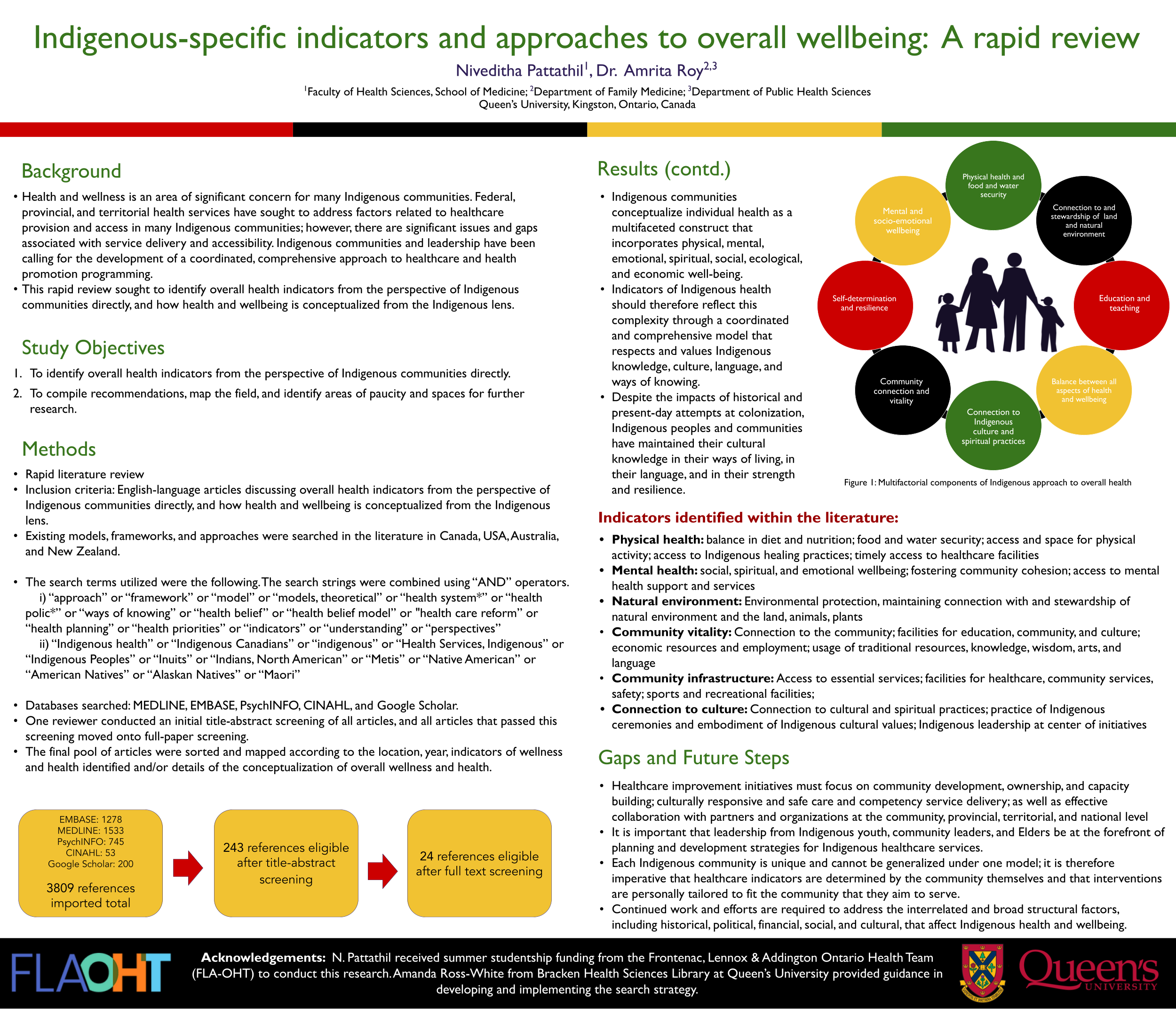SRFP056: Identifying Indigenous-focused Indicators for Healthcare Systems: A Rapid Review
Niveditha Pattathil; Amrita Roy, MD, PhD, CCFP
Abstract
Objective: To identify and synthesize key Indigenous-specific indicators and priorities for health systems.
Design: Rapid review of peer-reviewed academic and grey literature. Databases searched: MEDLINE, EMBASE, PsychINFO, Cochrane, CINAHL, and PROQUEST; and, Google Scholar for grey literature. Screening is in progress at the time of abstract submission. Upon completion of full-text screening, data extracted from included papers will be the year, location, indicators identified, and other notable points/themes. The final analysis will summarize, map, and synthesize this information, and report findings around common trends, and patterns. Areas of paucity in the field and potential goals for future research will also be identified.
Anticipated Results: Initial impressions from eligible articles suggest key priorities for Indigenous peoples include: maintaining connection to Indigenous culture, lands, and community; access to traditional healers and Elders; harmony between mental, physical, social, ecological, and spiritual wellbeing; investment in Indigenous community development, ownership, and capacity building; and provision of culturally responsive, safe, and competent healthcare service delivery.
Conclusions: Indigenous communities conceptualize individual health as a multifaceted construct that incorporates physical, mental, emotional, spiritual, social, ecological, and economic wellbeing. Indicators of health systems performance vis-a-vis Indigenous health should therefore reflect this complexity through a coordinated and comprehensive evaluation approach that respects Indigenous knowledge, culture, language, and ways of knowing. This rapid review will synthesize indicators, thereby informing future research and action.

Eva Purkey
11/20/2021Thanks for this, I like this framework and think it is helpful to think about community development both with Indigenous people and other community based work. I wonder how to strike the balance between the fundamental importance of Indigenous leadership and the burn out that Indigenous leaders (and other equity-deserving groups) face when asked for input & leadership over and over again. it is a lot of work